About Scott Laidler
Specialist in personal training for driven people
After 15 years of coaching professionals who’ve succeeded at everything else, I’ve learned why fitness results can elude even the most hardworking people. So I build them exercise plans that work even when life is at its most chaotic.
- Psychology-led behaviour change (BSc Psychology)
- Simple systems that hold up under travel, stress and long weeks
- Training + Nutrition plans designed for consistent 80% adherence.
This service has been created to keep ambitious people in shape year-round, not just when conditions are perfect.
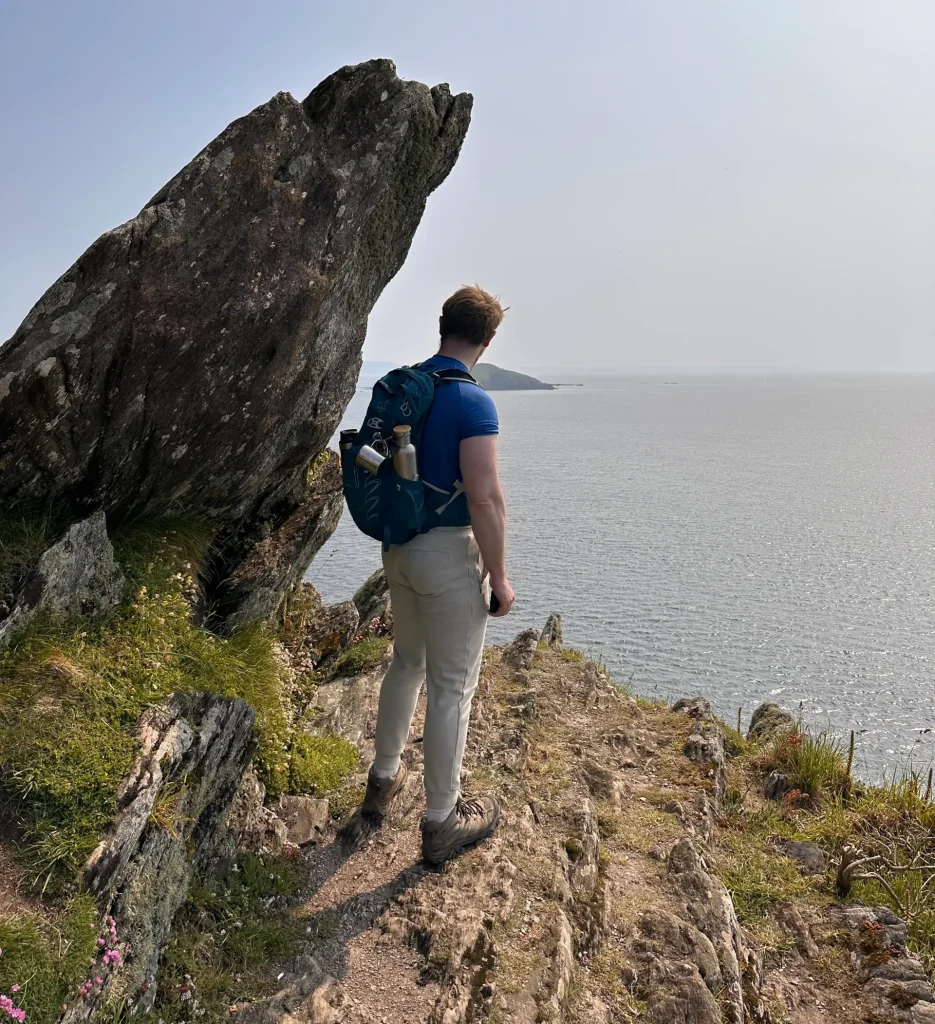

Why I work with driven professionals
Your ambition shouldn't cost you your health
For the last 15 years as a personal trainer, I’ve coached people operating at the top of their fields, whether executives, founders, specialists in law, finance, tech or medicine.
The pattern is the same almost everywhere. Long hours are the norm, travel is frequent, and schedules are prone to change at short notice.
Most popular fitness advice is built for, and assumes a different life: fixed schedules, plenty of recovery time and the ability to make training the focal point of the day.
When you try to apply those frameworks, which often take their cues from Hollywood, sport and bodybuilding to a 50+ hour week, they work on paper but fail in practice.
Plans that require perfect conditions start out as exciting new fitness initiatives, but quickly become just another source of stress. My work is now about reconciling that mismatch. I build systems that let ambitious people stay in shape without having to live like full-time athletes or give up on normal social events.
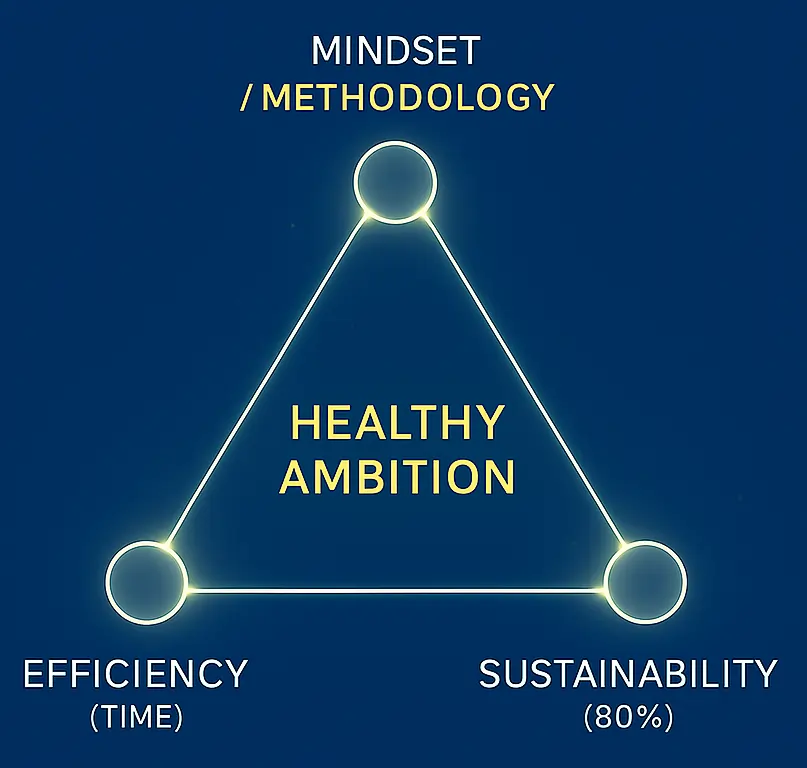
I learned this myself the hard way
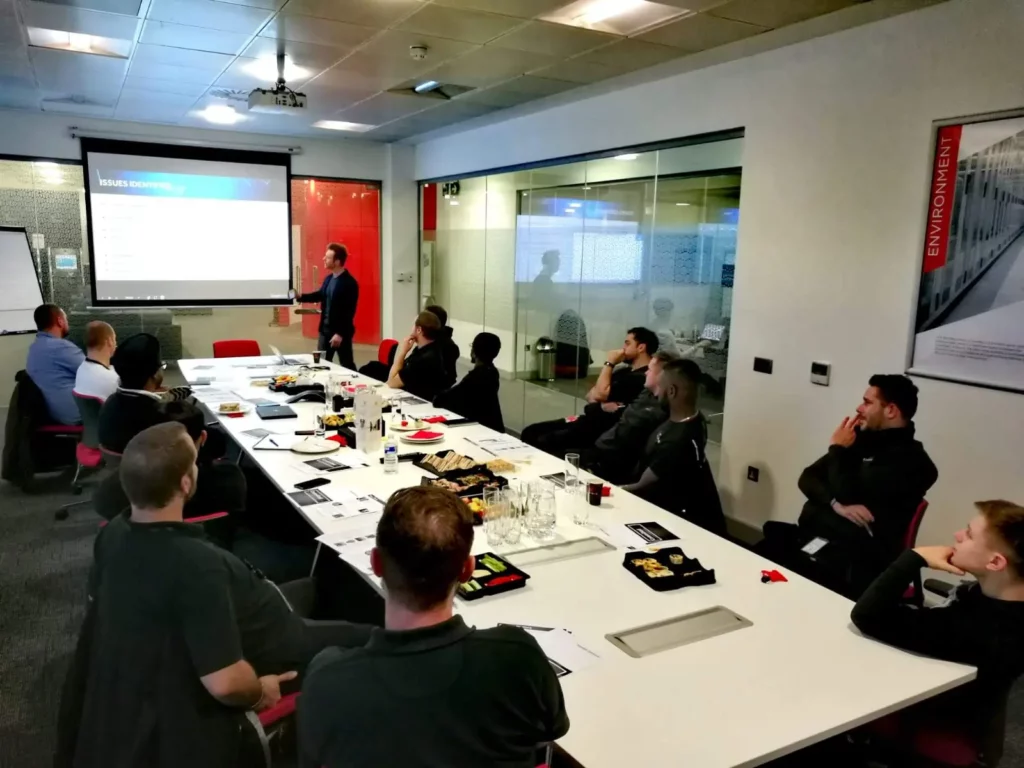
At the start of my career, I made the same mistakes most driven people do. I believed results were purely a function of effort; the more, the better. So I trained twice daily, followed rigid meal plans and said no to anything that didn’t serve my goals in the gym.
Eventually, I “cracked the code”: I could take myself, and later clients, to photoshoot conditioning on demand. That ability opened doors to working with high-profile clients, writing for national newspapers, and building a full book of 1:1 clients in London.
But there was a problem. The very system that built my body and my career was quietly eroding my health.
As demand grew, my days stretched to 16–17 hours, often with back-to-back client sessions from 5 am to 10 pm, bouncing between parks, private homes and offices. I’d sleep in my car if I were starting close to where I ended the night before. Meals became whatever I could grab between appointments. Sleep debt piled up, and caffeine replaced recuperation. On paper, I was the picture of success: fully booked, clients getting excellent results, and appearing in the media. But I was red-lining, and my body was telling me in a dozen ways that this couldn’t go on.
That experience gave me enormous respect for what my clients were up against. For them, long days, back-to-back meetings and competing responsibilities weren’t a phase; they were industry standards. Asking them to follow the same “all or nothing” regime I had used in my twenties wasn’t just unrealistic; it would have been irresponsible.
Having lived on the edge of burnout while working in an environment dedicated to health, how could I continue with the same methodology, knowing my clients’ lives were far more complicated than my own?
The turning point came when I asked a different question. Instead of “How do you get to 100% peak condition?” I considered “What if you could sit at 80% of your absolute peak year-round, lean, strong and capable without sacrificing your presence at work and home, or your long-term health?”
To answer that, I stripped my own training and nutrition back to first principles. I stopped chasing maximum volume and started designing around recovery capacity. I built plans that assumed the presence of stress, travel and disrupted sleep instead of hoping they wouldn’t occur too often.
The result was what eventually became the Healthy Ambition method. With roughly a third of the training load and far less rigidity around food, I found myself in better shape at 35 than I’d been at 25 and, crucially, able to sustain it while working full-time, or travelling and now carrying real responsibilities.
Today, my life looks far more like that of my clients’ than my early-career contemporaries in the fitness industry. I deliver corporate sessions, speak at events, travel internationally and juggle the same competing demands as the people I coach. I use the same systems I built for them, all aimed at staying within striking distance of peak condition, and fully functional without requiring that you live life like a training camp.
That’s why I focus exclusively on getting fitness results for busy professionals. I know first-hand how easy it is for success in your career to come at the expense of your health, and how unnecessary that trade-off really is. My goal with this program is to provide my clients with a reliable system that ends the necessity of a trade-off between health and success.
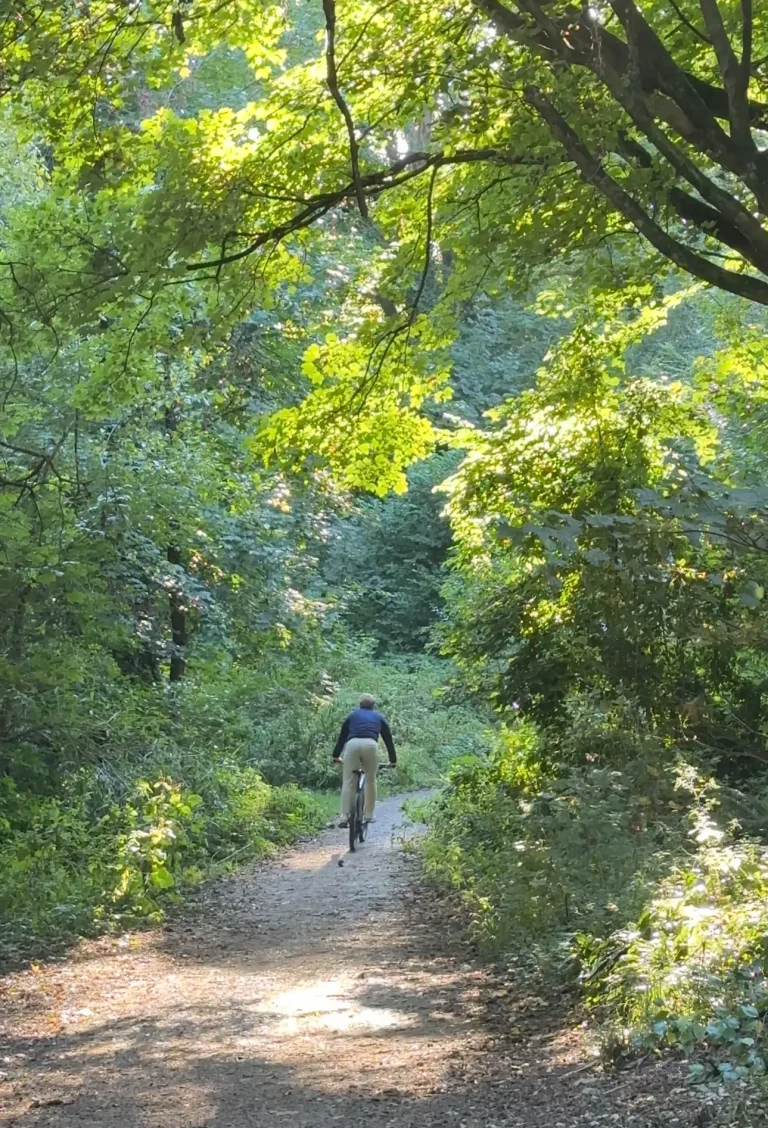
Energy is off the charts though. Had a very long day in the office yesterday and did not get back until 10 PM, but still had the energy to hit the gym. I have also started seeing obvious results in muscle growth. Particularly my arms, shoulders, lats and legs. I can definitely feel my core muscles strengthening. Overall very happy with the results so far. George
George. S - Online personal training client
Considering working with us?
Meet our integrated online personal training team.
We’re a full-time specialist duo: I’ll be your single point of contact for your training, with nutrition backed by a dedicated nutritionist for meal planning and healthy recipes.
This isn’t a side hustle or a venture-funded fitness app with a revolving door of part-time coaches; we operate as a boutique consultancy with an intentionally limited number of clients.
Drawing on over 15 years of experience coaching high achievers in finance, law, tech, media and healthcare.
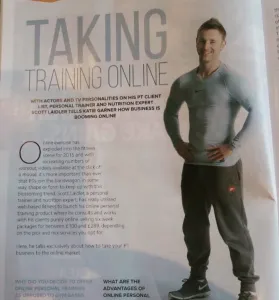
Scott Laidler BSc
Personal Trainer & Program Creator
With 15 years’ experience coaching clients across 54 countries, I specialise in helping high-performing individuals align their fitness goals with demanding careers and complex lifestyles.
My background spans Hollywood role preparation, corporate wellness initiatives, and 10 years as a health & fitness writer for the Telegraph. That breadth has given me a lens on what actually works, across contexts, personalities and constraints.
What I’ve found is this: The biggest roadblocks in fitness aren’t technical exercise problems. Many aren’t even related to working out, at least not directly. They’re psychological. Identity, stress, perfectionism and feelings of burnout are more disruptive than making a wrong decision about exercise selection, sets and reps.
That’s why this online personal training service goes beyond workouts. It’s a comprehensive process designed to make fitness frictionless, even at the highest levels of personal and professional demand.
My Bachelor of Science degree in psychology, combined with real-world experience in fitness, allows me to help restore the energy and confidence a high-performance lifestyle demands.
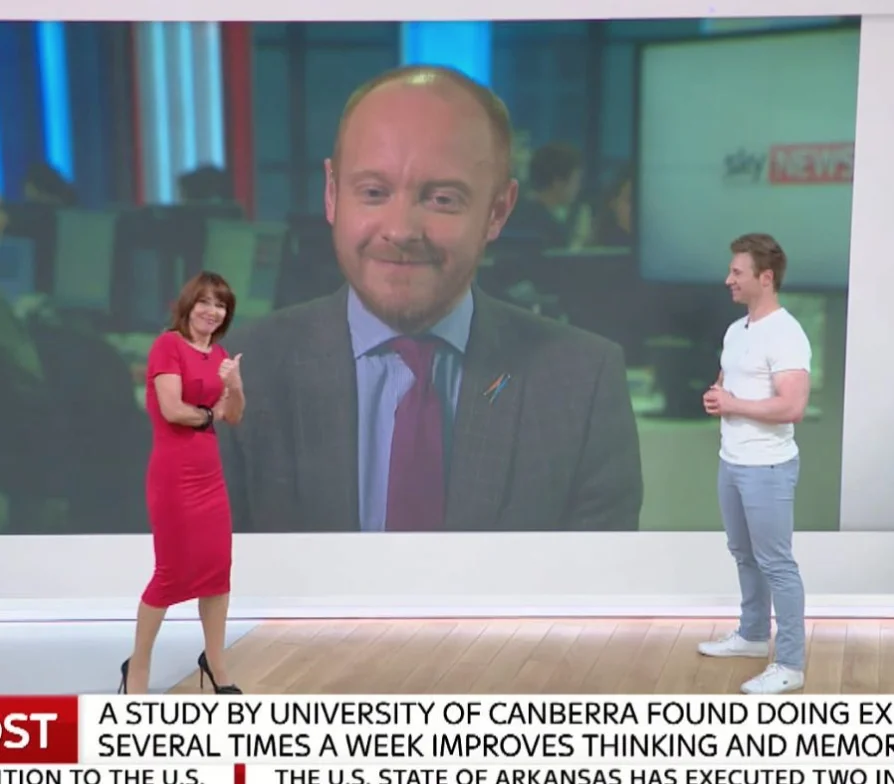
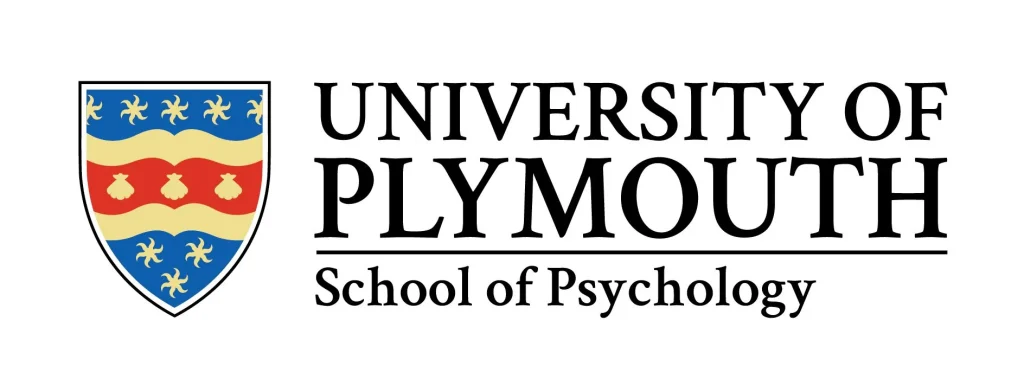
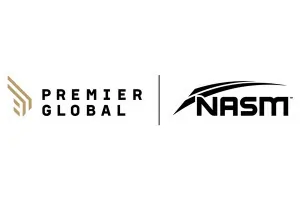

For over a decade, I have been a contributor to international media.
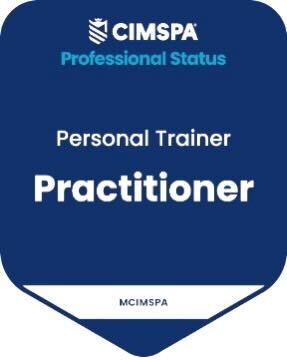
Click the shield for credential verification
Katie Turianytsia
Nutrition support & recipe development

Katie supports our clients with a non-restrictive nutrition strategy and recipe development, designed for real life, travel, and long-term adherence. She holds a doctoral qualification (DMD), and her role within our service is focused on nutrition planning and practical execution, not medical diagnosis or treatment.
You can expect approachable, easy-to-prepare recipes you’ll actually enjoy and feel comfortable sharing with friends or family. No bland bodybuilding-style meal plans, no rigid food rules. Just smart, flexible nutrition that supports long-term body composition and wellbeing.
Katie sees each meal as an opportunity to practise self-care, not self-judgement. For clients used to viewing food only through the lens of weight loss on the scale, her approach can be transformative.
Many describe it as the first time they’ve felt truly at peace with how they eat, free from the cycles of restriction, rebound, and guilt that have dominated their past attempts at lifestyle change.
Katie’s role:
Builds your personalised nutrition framework and recipe library
Helps you simplify eating for body composition and performance
Supports consistency while travelling and during high workload weeks
Does not provide medical care; medical issues remain with your GP/consultant



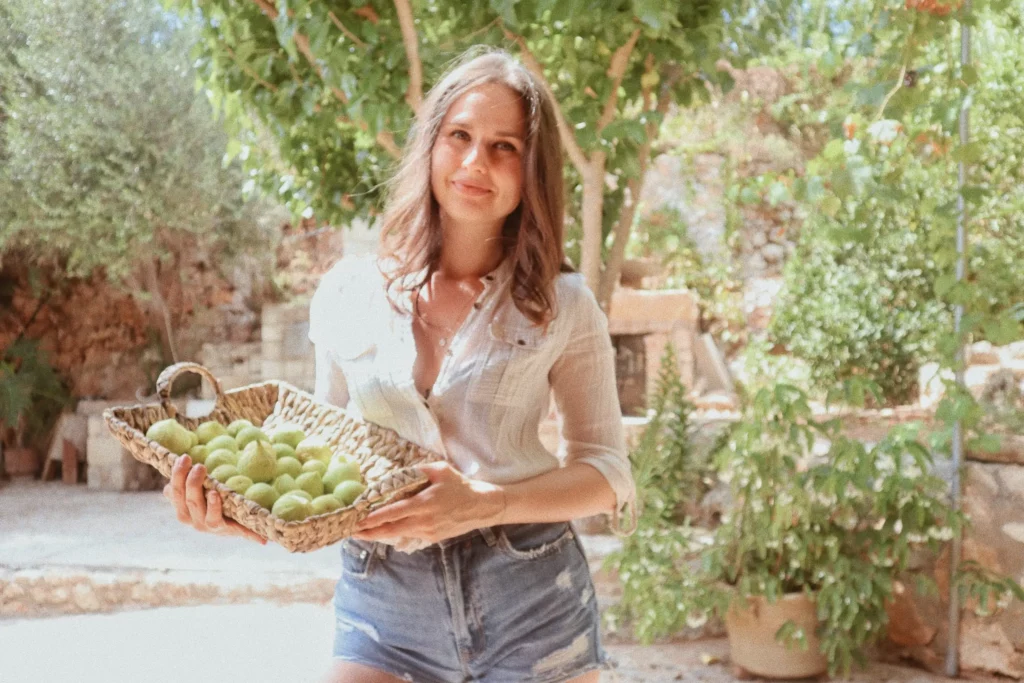
Fewer rigid workouts & more food = better results
The pattern you'll hear across these 15 client stories
If you’re wondering whether this program can genuinely create lasting change, don’t just take my word for it. In this short video, you’ll hear directly from 15 of my clients. Professionals in their 30s to 60s who’ve balanced demanding careers, family obligations and personal setbacks, yet achieved results they once thought were out of reach.
A clear theme runs through each personal account. They do fewer rigid workouts, enjoy more outdoor activity and eat more food, not less, than in past transformation attempts. That’s the result of a non-restrictive, sustainability-first approach. If I don’t think you could do it for a full year, I won’t include it in your plan. The outcomes speak for themselves.
What guides my approach:
Experienced. Strategic. Human
After 15 years and thousands of coaching hours, I’ve developed strong beliefs about what actually works vs what’s sold as working solutions that I see fall short in practice. These principles guide every decision I make about who I work with and how I structure programs for my clients.
Health and Fitness is a system, not a collection of tips & hacks
Fitness must be viewed as a system that integrates exercise, nutrition, lifestyle and mindset. If you try to compartmentalise the various elements you can end up with a number of actions pulling in different directions completely neutralising the progress you could have made.
For example, you could have a goal of gaining muscle, but bring in a calorie intake too low, which makes success mathematically impossible. The same could apply to training load, if your frequency and volume or exercise doesn’t match the amount of rest you’re getting, you could wind up with unmanageable fatigue rendering your workouts unrecoverable and unable to bear fruit.
Results only count when you can keep them
Manipulating weight or body composition is easy when you have the time and space to dedicate your life to it, or take extreme short-term measures. My clients can’t do the former, and I’d never suggest they do the latter, so we take a sustainable approach.
Early in my career, I met a winner of a popular weight loss game show, it was about a year since the show aired at the time, this person had gained all of their weight back and more, and told me many of the winners from other seasons had experienced the same. This taught me on the spot that methodology built for a moment in time is not really a solution, it’s a party trick. I began to look around me at the fitness industry and ask, what happens after all of the before and afters?
The way I see it, a result is really only worthy of that description when the change can be maintained year-round. Without that, there is no established baseline, habits or systems that could be considered a lifestyle meaning you are essentially always on a countdown until old habits and conditioning are once again the norm.
Motivation is a weak foundation, a system is reliable
Feeling motivated for success in fitness is great, but it’s completely normal, human and expected for that motivation to ebb and flow, especially through busy or stressful periods of life. If all you have supporting your effort is willpower, you are on shaky ground.
What you need instead is a system. So that your workouts, meals and recovery habits all follow processes and contingency strategies that will be implemented as reliably on your least motivated days as they will on your most, that’s when results become far more predictable.
How we work together:
Now that you understand my story, philosophy, and who you’ll be working with, here’s what working together actually looks like. This is a brief overview; you can see the complete methodology, support structure and program details on the service page.
Book a 1:1 consultation call to identify your bottleneck. We'll look at training history, calendar constraints and goals to reveal current blindspots in your approach.
I'll build the architecture. You get a fully integrated system: Training, nutrition and lifestyle habits to support recovery. Designed specifically for your schedule.
You execute a simple daily workflow in the fitness app, aiming for 80% adherence. I monitor your progress in the background and we course-correct in real time.
What Makes This Different
- Real-time oversight: We don’t wait for monthly check-ins. I review training multiple times per week and adjust when life actually changes, not when the calendar says so.
- Monthly program rebuilds: Your workout plan evolves as your body adapts. No learning curve, no stagnation, just continuous progression.
- Designed for 80% adherence: Your personalised fitness plan is built to deliver results during imperfect execution because perfect consistency isn’t a realistic proposition for busy people.
- Psychology-informed: My coaching leverages 15 years of pattern recognition. I draw on my BSc Psychology to help anticipate the decisions you’ll make under pressure, and create contingency scenarios for you.
- 1:1 fitness coaching: All of your coaching interactions are with me personally, not a team of rotating junior coaches. Continuity and relationship matter for long-term success and faith in your program.
- Boutique client base My service isn’t intended for scale; I’ve proactively capped my client base to maintain service quality and preserve responsiveness.
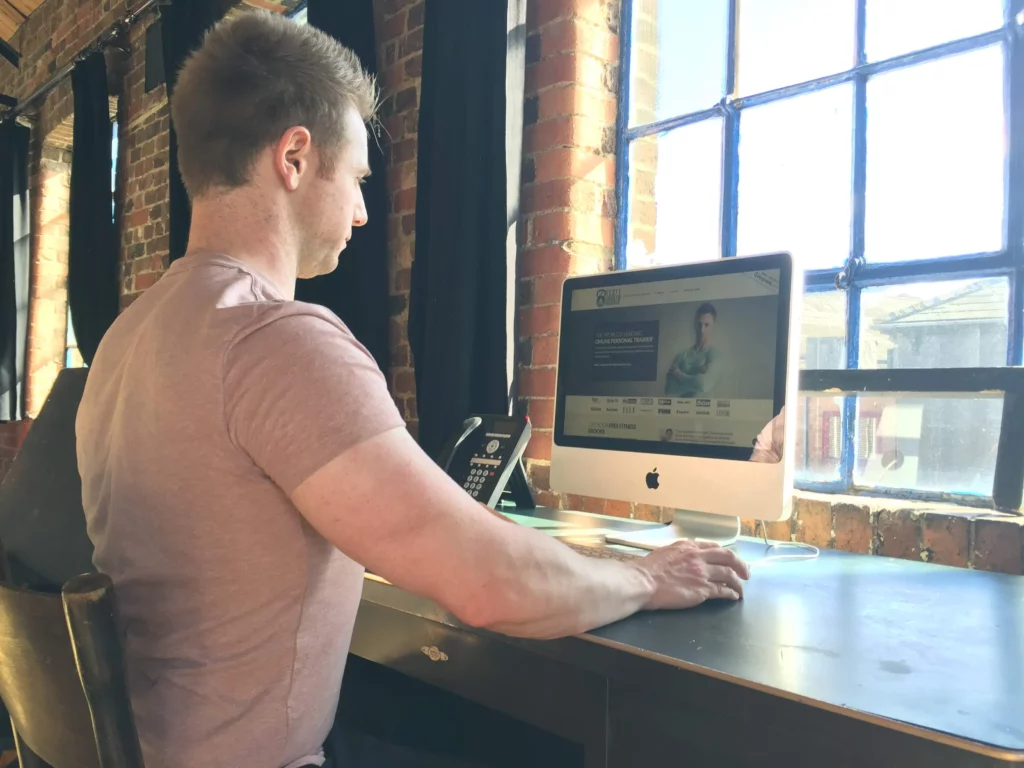
Required Investment:
Custom training, nutrition oversight, and professional accountability.
$235
Billed Monthly. No Commitment, Cancel Anytime
$597
Billed Quarterly. 15% Discount on Monthly rate
You can pay monthly for maximum flexibility or commit to a full quarter upfront. The quarterly commitment removes decision fatigue around your next move, and billing aligns with the long-term focus of the work. This isn’t a discount for buying in bulk, it’s an incentive to commit to a timeline that actually produces transformation. Most of my clients continue for 12+ months because the system becomes easier to maintain over time, not harder.
Required Investment:
Custom training, nutrition oversight, and professional accountability.
$235
Billed Monthly. No Commitment, Cancel Anytime
$597
Billed Quarterly. 15% Discount on Monthly rate
Who this is for:
This works best if you:
- Have a demanding career with an unpredictable schedule
- Have tried programs that worked briefly, then failed
- Can commit to 3-4 efficient workouts per week
- Value strategic thinking and want to understand the system, not follow arbitrary rules
- Are done with transformation cycles + yoyo dieting and want lasting results
This won’t be right if you:
- Want shortcuts or quick fixes
- Need someone physically present to motivate you to exercise
- Want rigid bodybuilding-style programs or marginal improvements in sporting performance
- Are focused on a single event or deadline
Want to know more about who you’d be working with? Read more about the specific methodology I use to deliver results with my coaching or my comprehensive guide to finding an online personal trainer